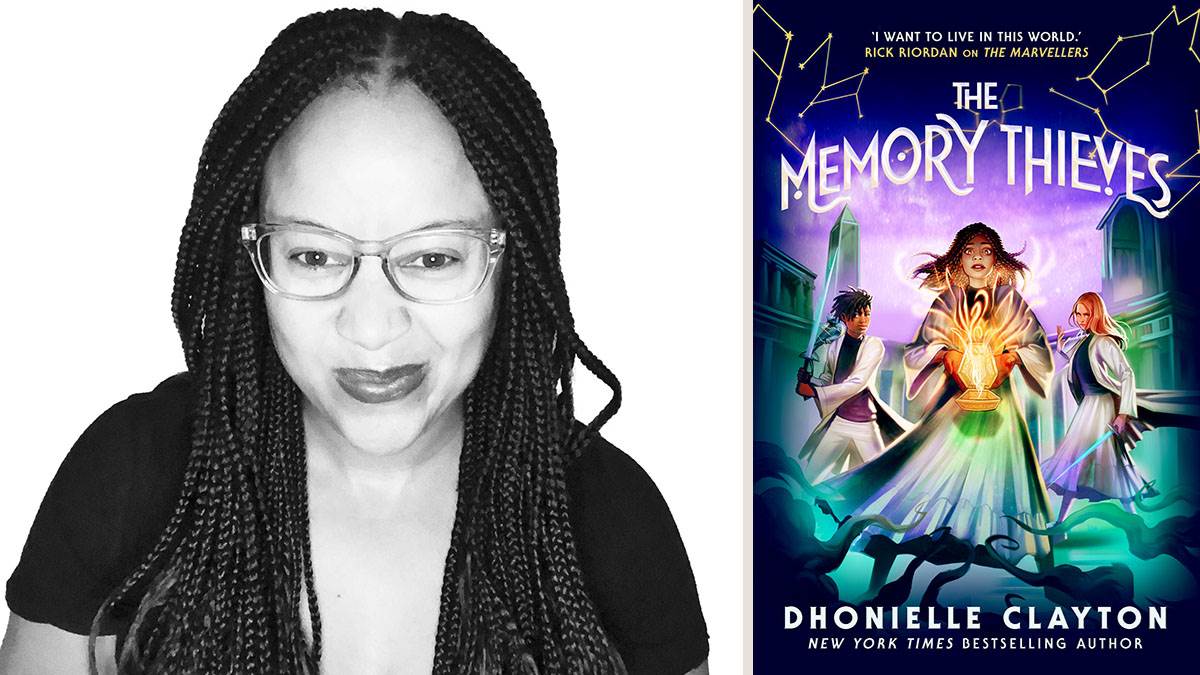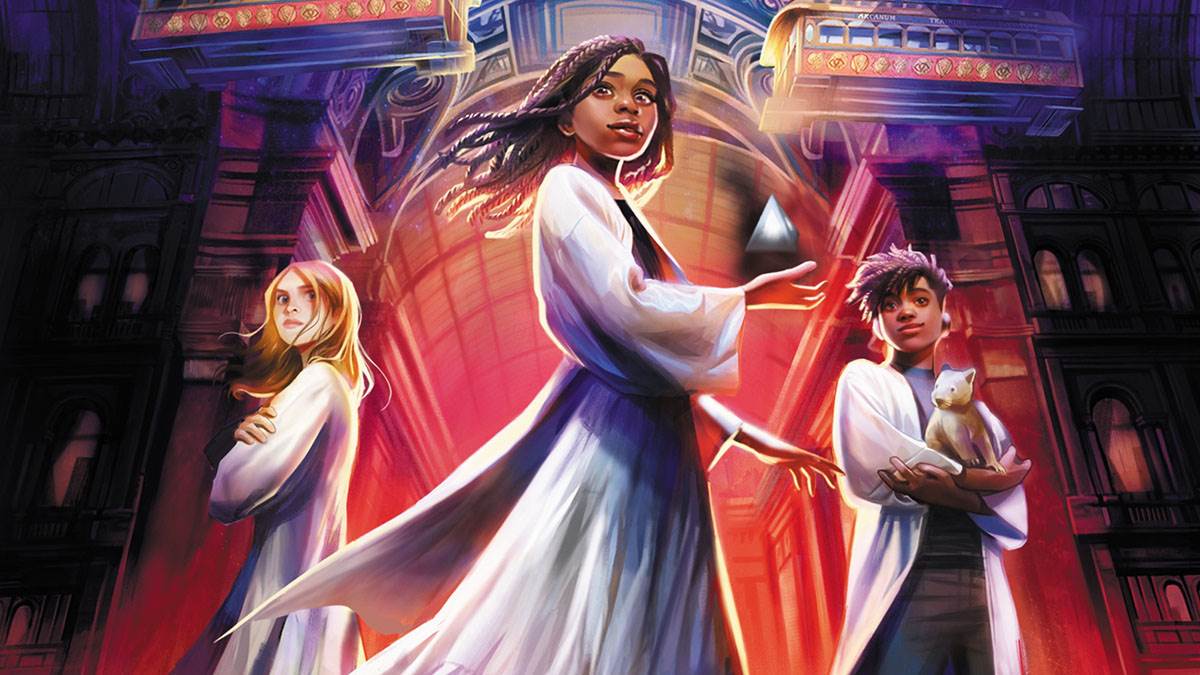Electrifying a classroom and library: the importance of inclusive, diverse fantasy worlds
Published on: 27 September 2023
The Marvellers and The Memory Thieves author Dhonielle Clayton explains why contemporary fantasy has to offer adventure for all children.

Photo: Jess Andree
Lifelong readers of children's books have had their imaginations built on cosy, familiar worlds: adventures through the wardrobe into Narnia, hijinks with spells at Miss Cackle's Academy for Witchcraft, journeys north to Svalbard with an armoured bear, encounters with mystical tollbooths, learning how to negotiate with Mrs Whatsit, Mrs Who and Mrs Which, discovering one of your parents is a Greek God, receiving invitations to Hogwarts School of Witchcraft and Wizardry, winning a golden ticket to Willy Wonka's legendary chocolate factory, and more.
Many librarians and teachers, even me, race to give young people the books that built our very own imaginations. We want to share what made us into readers and lovers of fantasy literature, our nostalgia driving our selections, our displays, and our reading suggestions.
However, a pervasive and constant return to only the fantasy classics means young people may not get the chance to be introduced to characters (and authors) who reflect a diversity of experiences vastly different than the beloved, always-taught-and-recommended texts.
It was as if magic world invitations to BIPOC, BAME, LGBTQIA+, neurodivergent, and disabled kids seemed to get lost in the post, and those children were left perpetually waiting, lost in the margins, ready for adventure, but sidelined... and for a long time, no one cared.
Giving children characters they can relate to
Years ago, as a school librarian in New York City, armed with all those beloved texts, I tirelessly worked to get my students to connect with those characters and worlds. I thought I could make more bookworms, more obsessive readers of fantasy fiction. But I failed.
My students wanted something different... stories with kids who came from all over the world, stories with kids who spoke multiple languages, stories with kids from neighbourhoods people turned their noses up at...
At the time, the publishing industry contained slim offerings. My students began to ask me hard questions about fantasy books: Why don't kids like them get to be magical? Why don't kids like them get invitations to magic school? Why are they never chosen to save the world? Why did authors always forget about them?
It felt heartbreaking not to have a variety of books that could negate those questions, so I became a fantasy author to try to answer them. Being a fantasy author was never an occupation I thought I could have because I didn't grow up reading fantasy books by and about people from my community.
I struggled to imagine Black kids like me in classic fantastical landscapes. I'd found myself in historical fiction and contemporary stories about overcoming race-based adversity. But I desperately needed roadmaps to hidden worlds and secondary world fantasies. I wanted magical creatures. I desired superpowers and duels against dastardly villains. I needed to see someone who looked like little-girl-me save the world.
Time to disrupt the canon

Pic: Khadijah Khatib
I felt compelled to write for my students and to start meeting their requests. Their most popular desire was a magic school for all. The school I worked in reflected New York City itself, full of kids from all over the world. It was time to disrupt the canon.
I wanted to work in the grassroots tradition of the #DisruptTexts movement, providing new heroes, new magic, and doors to new worlds for teachers, librarians, and readers. This crowdsourced effort is led by teachers in the USA and encourages educators to challenge the traditional Western canon to create a more representative, expansive, inclusive, and equitable curriculum for language arts classrooms to serve all students.
Their focus on books as the cornerstone of change felt inspiring to me, a jumping off place for how a diverse book selection could electrify a classroom and library for its young readers. I wanted to be part of this and provide teachers with a text they could use alongside other familiar magic schools that take up lots of space in the classroom and library – and popular culture.
Meeting The Marvellers
The hero of my novel The Marvellers, Ella Durand, is an 11-year-old deeply rooted in her Black American culture and New Orleans community, drawing magic and strength from those wells. She's a Conjuror with a big heart and big dreams to represent her community at the Arcanum Training Institute for Marvellous and Uncanny Endeavors, a magic school in the sky.
The universe of The Marvellers is built from various communities; Ella is a bridge between worlds and is meant to be a disruption of the status quo... much like the series is meant to be in the all-white world of children's fantasy fiction.
I want this series to talk about what the future of magic could look like when all kids are accounted for, and there's a place for them to be centred and feel included. What does a global magic school look like when all of the kids of the world go there? How does it help all readers reinvent their idea of a hero?
I hope teachers and librarians can endeavour to disrupt: to help the next generation of readers find their doors to Narnia, but also keep their eyes on the clouds for a hopeful sighting of the Arcanum Training Institute for Marvellous and Uncanny Endeavors and beyond.
There are so many children in the margins longing to learn how to have the courage to be heroes and to find their home between the pages.
The Marvellers and The Memory Thieves by Dhonielle Clayton are out now.





